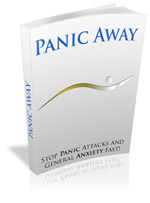Anxiety Headaches Symptoms and Treatment
Are you experiencing anxiety headaches? Find out by assessing your symptoms with the information provided below. Anxiety headaches can be a gigantic problem in a person’s life, they can keep you from being able to function, which then can lead to more anxiety and then further headaches, a very vicious cycle.
Diagnosing an anxiety headache and usually pretty easy because they are associated with a particular type of pain, they also happen to be the most common type of headache. If you are under a lot of stress or hold your head in a strained position for long periods of time you could be suffering from anxiety headaches.
Treatment is very simple and usually includes changing your lifestyle and/or using medication. Anxiety headaches are referred to commonly as stress headaches or tension headaches and don’t typically cause nausea or light sensitivity like a migraine would.
Symptoms are usually an achy or dull pain, a squeezing or throbbing pain. They start out fairly mild and get worse over time and can take place on the back of your head, neck, temples, forehead or both sides of your head. You may also experience muscle tightness and pain in your head and neck.
There are two types of anxiety headaches, chronic or episodic, the classification depends on the severity and length of time. People who have episodic usually have mild or moderate pain that occurs less than 15 times a month, it can last anywhere from a half and hour to a week. If they happen more frequently than that, they are considered chronic.
The main cause of anxiety headaches is tension in the neck and head muscles, usually brought on by either physical or mental stress. Poor posture, bending your neck while computing or leaning over to read a book can cause them, having excessive worry, anxiety and/or stress can lead to tight muscles which can also cause them.
There are many ways to treat them including over-the-counter pain relievers like ibuprofen, taken on the onset of the symptoms. A hot shower or bath, applying heat or ice may also help as well as massage. If you experience them often talk to your doctor.
If you can prevent anxiety headaches that is the best course of action. Determine what is causing them and try to reduce your stress levels, seek out counseling, get more sleep, improve your posture and be sure to exercise.
Anxiety headaches can be a pain, literally, but they can be helped easily and often without the need for medication, if they don’t happen often medication is a fine way to treat them, but if you’d prefer not to be taking medication, finding more natural ways to relax will help you to stop having the headaches as often.

